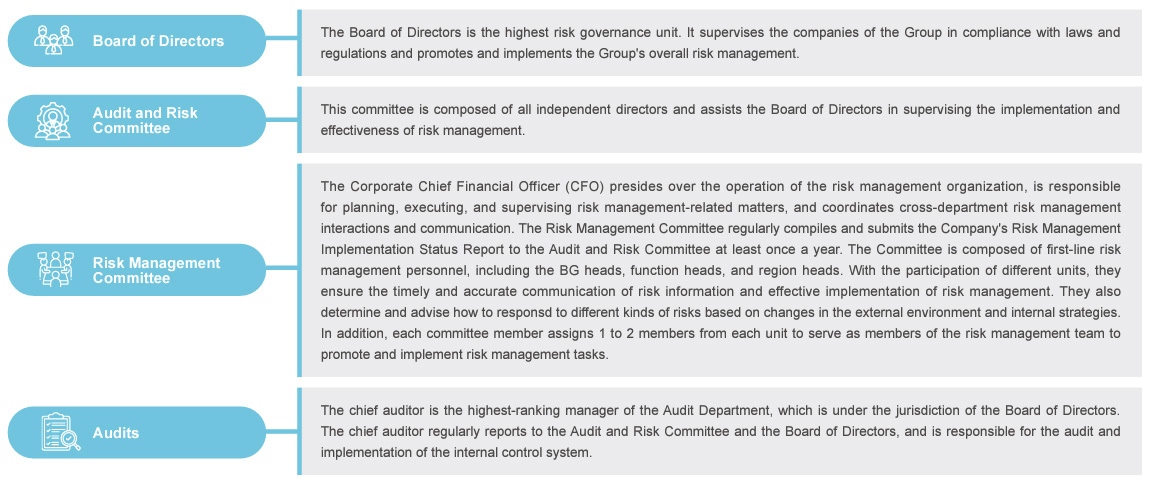Delta has adopted a preventive policy for risk management. In addition to setting up a rigorous internal control system and assigning internal auditors to conduct audits at regular and irregular intervals, Delta has also set up committees and crisis management teams to implement risk management and control. Delta's Board of Directors passed the "Delta Group Risk Policy" in 2020 to specify the units responsible for various risk factors. The units use risk identification, risk assessment, risk control, risk monitoring, and communication management procedures to ascertain the scope of risks and take appropriate measures to ensure the adequate management of related risks. A risk report was made to the Board of Directors on July 31, 2024 by referencing ISO 31000 and COSO-ERM as well as the Risk Management Best-Practice Principles for Taiwan Stock Exchange and Taipei Exchange listed Companies issued by Taiwan Stock Exchange. The Group's Risk Management Policy, including the Group's Risk Organizational Structure, was revised to clearly specify the risk management duties of the governance team and the three lines of defense, and to confirm the Group's short-to mid-term (one to two years) mid- to long-term (three to five years) emerging risks, thereby improving the risk management process.
